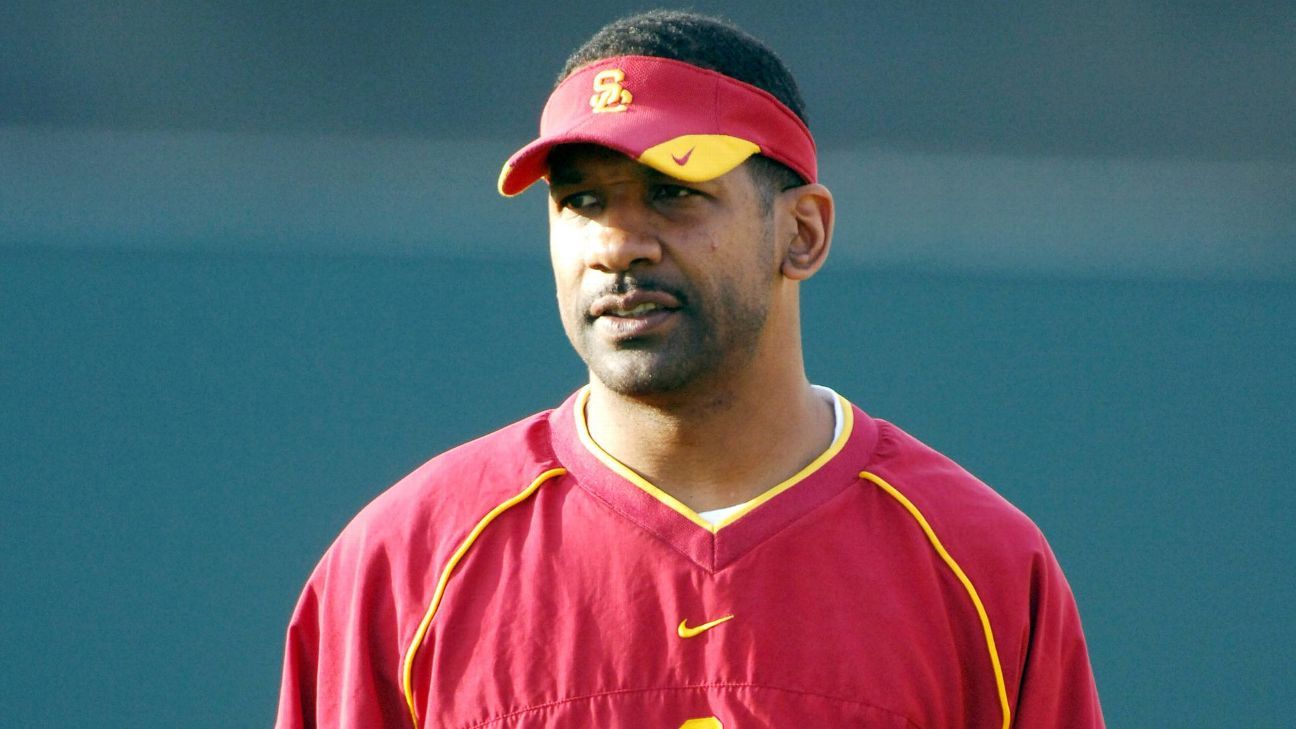A California Court of Appeals on Friday affirmed a lower court’s order for a new trial in former USC assistant coach Todd McNair’s long-standing defamation lawsuit against the NCAA, which found that he violated ethical conduct rules during its investigation into whether former Trojans star Reggie Bush received improper benefits while playing in college.
A three judge-panel of the Second Appellate District in Los Angeles denied the NCAA’s appeal of the trial court’s declaratory judgment and its order granting McNair’s motion for a new trial. The appeals court also ordered the NCAA to bear the costs of the appeal.
“We hold that the trial court did not abuse its discretion in finding insufficient evidence to justify the verdict on falsity,” the appeals court ruling said. “Accordingly, we affirm the new trial order and do not address the NCAA’s challenge to the declaratory judgment.”
McNair is in his second season as the Tampa Bay Buccaneers‘ running backs coach and will coach against the Kansas City Chiefs in Super Bowl LV on Sunday.
In January 2019, Los Angeles County Superior Court Judge Frederick Shaller issued an order for a new trial, citing insufficient evidence to justify the original verdict and implied bias from a juror.
In May 2019, a jury in Los Angeles ruled in favor of the NCAA following a three-week defamation trial stemming from McNair’s involvement in the Bush extra benefits scandal.
Shaller ruled the jury foreperson, an attorney, should not have been able to participate on the jury due to an implied bias. The juror’s law firm, Latham & Watkins, was part of the NCAA’s legal team on the McNair case. He did not work on the case, didn’t work in the same office as the firm’s lawyers that did and professed impartiality, but that didn’t matter to the judge.
“Permitting Juror No. 2 to remain on the jury and participate in deliberations and the verdict resulted a miscarriage of justice and in Plaintiff being deprived of a fair trial,” Shaller wrote. “Without Juror No. 2, it is likely a different outcome would have resulted.”
In 2010, the NCAA Division I Committee on Infractions issued a report that concluded McNair “knew or should have known” that Bush was engaged in rules violations with a would-be agent while playing for USC, and McNair “provided false and misleading information to the enforcement staff.” As a result, it issued McNair a one-year show-cause penalty and one-year recruiting ban that McNair’s attorney, Scott Tompsett, argued ended his career as a high-level coach.
The NCAA found that McNair had knowledge that Bush was involved in NCAA rules violations by receiving improper benefits from Lloyd Lake, a convicted felon, and his associate Michael Michaels, who had formed a sports agency and marketing company. They provided Bush and his parents with cash, merchandise, housing, lodging and transportation in exchange for Bush’s promise to sign with the fledgling agency when he turned pro.
The NCAA’s Committee on Infractions said it was “particularly troubled” by a 2-minute, 32-second phone call between McNair and Lake that occurred at 1:34 a.m. on Jan. 8, 2006. McNair claimed he didn’t remember the nature of the call; Lake said he phoned McNair to intercede with Bush to get him to stick with his promise to sign with his agency.
The NCAA also cited McNair and Lake having a mutual friendship with comedian and actor Faizon Love; a photograph of McNair, Love, Lake and Michaels taken on Michaels’ phone; and three 1-minute telephone calls McNair made to Lake on March 29, 2005.
“More to the point, however, the question for the jury to resolve was not whether McNair lied about having a ‘relationship,’ known, spoken to, or interacted with, Lake,” the appeals court said in its ruling. “Rather, as some of the COI members recognized, the issue was whether McNair knew about Lake’s agency and the benefits he gave Bush and violated NCAA legislation by lying about that knowledge and failing to report that knowledge to USC. No amount of circumstantial evidence about interactions between McNair and Lake proved to the trial court what they spoke about or what McNair knew such that it would support the operative statement’s finding that he did know.
“That the two men may have spoken, may have had a celebrity friend in common, and posed for the same photograph are manifestly not evidence that McNair ‘had knowledge of’ the agency and improper benefits, which is the only way his denials would violate NCAA rules.”


